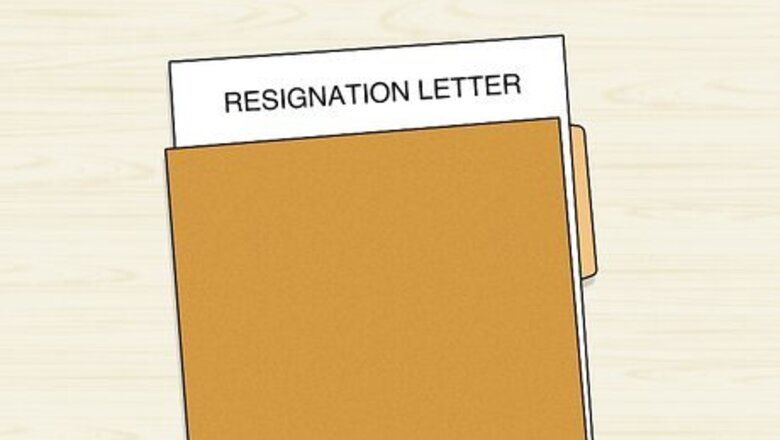
views
What does it mean when you quit a job?
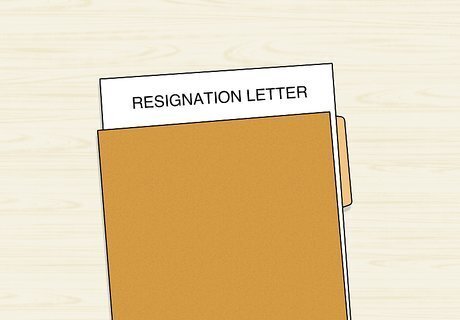
It means you’re formally notifying your job that you’re leaving. If you’re unhappy with your job or feeling unmotivated about work, it may be time for you to leave. While it may feel tempting, you shouldn’t just walk away without a word and never come back. Instead, tell your boss or supervisor that you’re quitting so you can leave on a good note and they can prepare to hire someone to replace you. Feeling unproductive, dreading work, and feeling stuck are all possible signs that it's time to leave your job. It might also be time to quit if you don't feel like you're learning anything from your current job.
How do you politely quit a job?
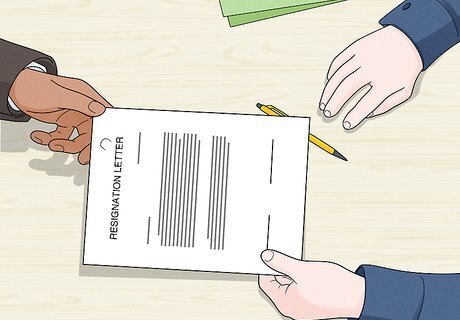
Resign in person and tell your boss directly. Avoid talking to your coworkers or clients about your plans to quit your job until after you have discussed everything with your boss. Once you’ve decided to quit, schedule a meeting with your boss. Keep the conversation private and tell your boss first. You could schedule a meeting that fits into their schedule or try asking them if they have a quick moment to chat. Be courteous but firm. Try saying something like, “I wanted to tell you first that I’m planning to leave the company.” If you need more room to explain why you’re leaving, or you need to detail the status of certain projects that you’re working on, write a formal resignation letter.
Give at least 2 weeks’ notice. No matter how much you dislike the job or how ready you are to leave, always try to give at least 2 weeks of notice. It’ll leave a good impression and your former boss may be a valuable reference for future jobs.
What do I say when quitting a job?
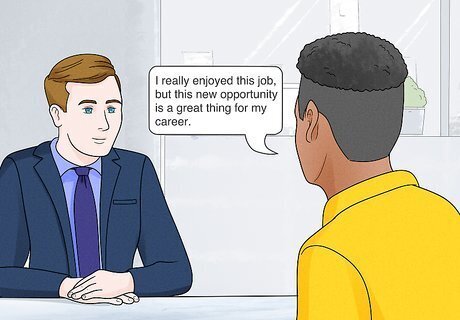
Put a positive spin on things to leave a good impression. Think about the aspects of the job that you enjoyed and valuable lessons that you learned. Focus on the positive things when you’re telling your boss that you’re leaving. Avoid gossip or bad-mouthing other employees, bosses, or policies to leave on a good impression. For example, you could say something like, “I really enjoyed this job, but this new opportunity is a great thing for my career.”
Rehearse what you’re going to say and how you’re going to say it. Take some time to really consider your words. If it helps, try writing them down. Practice what you’re going to say a few times so you can deliver the news confidently. Try repeating your words in front of the mirror to see how you look when you say them. Tell a friend what you plan to say so they can give you some feedback. It's always a good idea to thank your boss for the opportunity and for your time in the company.
What do you do after you quit?

Avoid talking negatively about the job after you give notice. Just like it’s best to avoid talking about your plans with other people at your company before you tell your boss, don’t talk negatively about the job once you’ve given your notice. Don’t talk about how ready you are to leave or how much you hated certain aspects (or people) of your job. End things at the company on a good note. Try to stay in touch with your former coworkers. Keep them in your professional network. You never know what opportunities they may create for you in the future!
Keep working hard during your final days at the job. Try not to slack off and check out after you’ve given notice. Finish strong and try to wrap up as many projects or assignments as you can. Get everything in order so whoever they hire to replace you is able to pick up where you left off. Leave the job with a good lasting impression. It may be helpful to leave a binder or written update of projects you’re working on so whoever takes over for you is able to figure out what needs to be done.
How do I quit my job immediately?
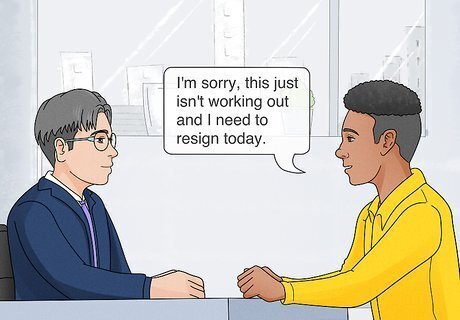
Tell your boss that you’re leaving today. While giving at least 2 weeks’ notice is the best practice, if your job is miserable or you feel unsafe, you may need to quit immediately. If that’s the case, it’s still a good idea to at least let your boss or supervisor know. It doesn’t have to be super complicated, just tell your boss that you need to talk to them and then deliver the news that you’re leaving today and you won’t be coming back. Be firm and direct and try not to make a big deal about it. They may not be happy, but at least you didn’t just walk away without any notice at all. Try saying something like, “I’m sorry, this just isn’t working out and I need to resign today.”
Is it bad to just quit a job without notice?
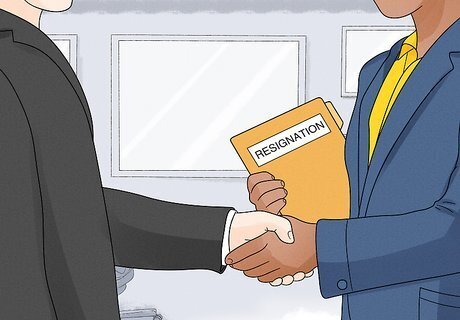
Yes, it can leave a bad impression and affect your reputation. It’s courteous and professional to give at least 2 weeks’ notice when you quit your job. However, if you need to quit immediately, you can tell your boss that you’re resigning today. Whatever you do, don’t walk away from your job without any notice at all. It’ll leave a bad impression and your damaged reputation could affect your chances at getting another job.
How do I quit my job during COVID?
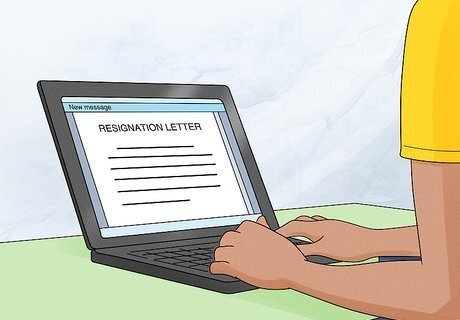
Write a resignation email that explains why you’re leaving. If you can’t meet with your boss in person because of COVID, you can still give them notice that you’re quitting in a professional manner. Draft a formal resignation letter and send it to your boss by email. Explain why you’re leaving, give your contact information, and provide a status of any projects that you’re working on. Give at least 2 weeks’ notice, thank your boss for the opportunity, and send your email. If concerns about COVID are a part of your reasons for quitting, mention it in your resignation letter. You could say something like, “I’m worried about being exposed to COVID” or “COVID has made working for this company too difficult for me.” A formal resignation letter is more professional than a phone call.















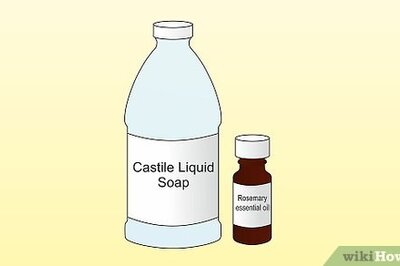




Comments
0 comment